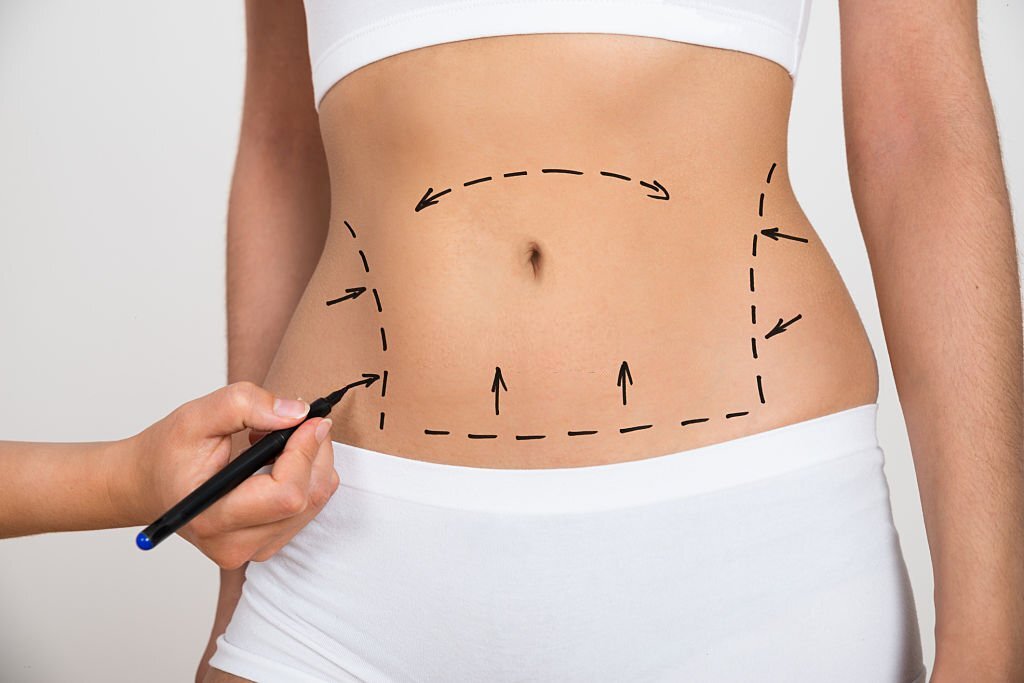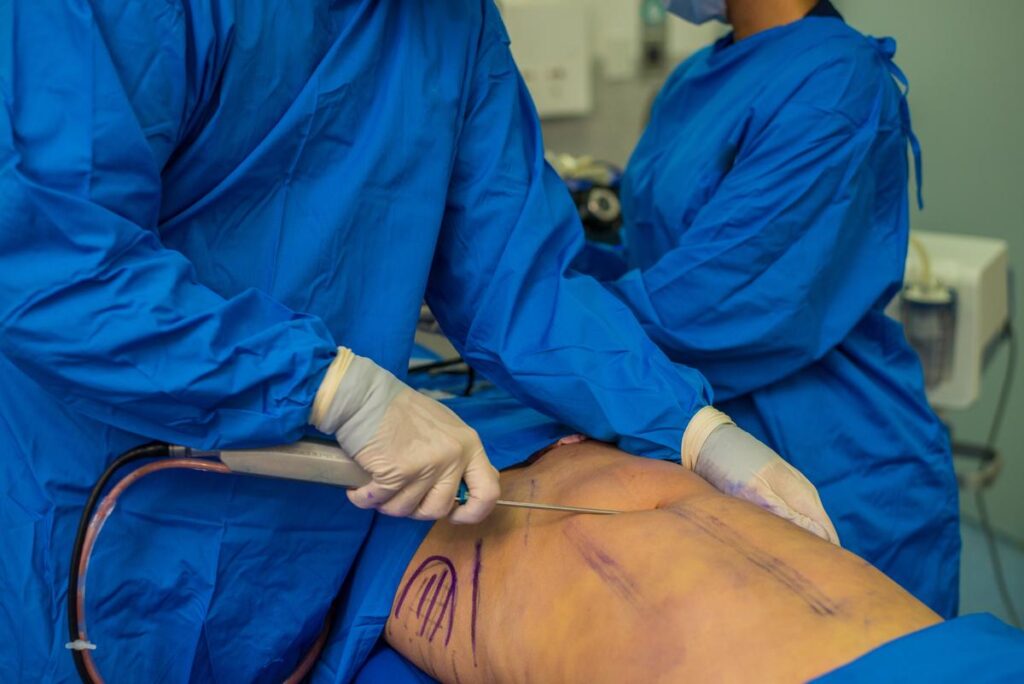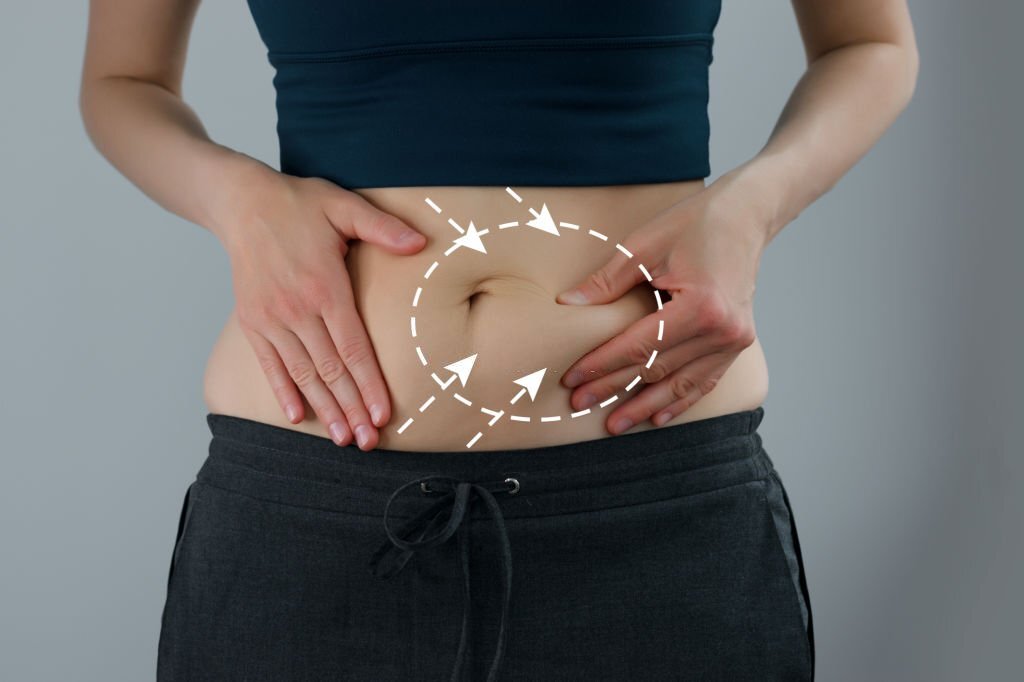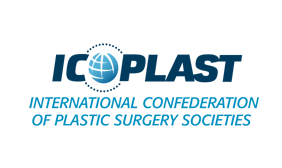Liposuction, although a commonly performed cosmetic procedure, is not without its risks. These potential risks associated with liposuction can considerably influence the results experienced by patients. Knowledge of these factors is essential in making well-informed decisions about this surgical procedure. Importantly, the guidance and expertise of a competent surgeon can significantly mitigate these risks, leading to safer and more satisfactory outcomes.
Choosing the Right Surgeon
A liposuction procedure requires the right surgeon to reduce the risk factors associated with liposuction . Make the right choice with these tips.
Dubai’S Premier Liposuction Clinic is the top place in dubai where doctors help people remove extra fat from their bodies. it’s like the best fat-removing hospital in the city.
- Credentials Verification: Ensure that your surgeon is certified by an association in plastic surgery. It means they’ve undergone special training and passed tests to prove their skill.
- Experience Matters: Look for a surgeon with a lot of liposuction experience. They should have done many of these procedures.
- Comfort Level: It’s essential to feel comfortable with your surgeon. You should feel comfortable asking them questions and getting satisfactory answers.
- Look at Results: Ask to see before and after pictures of other patients. What to expect can be determined by it.
- Communication Skills: Your surgeon should be able to clearly explain the procedure, potential risks, and recovery process and set realistic expectations. Good communication is key to ensuring a successful surgery and satisfaction with the results.
- Speciality and Focus: While many surgeons may offer liposuction, choosing a surgeon whose primary focus is body contouring procedures is beneficial. As a result, they’ll likely be more knowledgeable about the latest techniques and advances.
- Facility Accreditation : Ensure the surgery will be performed in an accredited facility. This indicates that the hospital or clinic follows strict safety standards.
- Patient Reviews: Online patient reviews can provide additional insight into the surgeon’s reputation, professionalism, and the quality of their work.
- Cost Evaluation: Make sure to understand all costs involved – surgeon’s fees, anaesthesia, facility fees, post-surgery care, etc. A clear understanding of the total cost of liposuction can prevent unpleasant surprises.
- Post-Surgery Care: A good surgeon will have a clear post-operative plan and be available to answer questions or address concerns after the procedure.
- Referrals: Consider asking your general practitioner or friends who have undergone similar procedures for recommendations.
- Comfort with Staff: Apart from your surgeon, the clinic or hospital staff play a significant role in your care. As a result, they may be aware of the latest innovations and techniques.
What are the Risk Factors Associated with Liposuction?

Here we have mentioned ten risks that you need to be aware of:
Book A Consultation With Dr Shehzadi Tasneem
Top-rated Plastic Surgeon For Liposuction in Dubai
Installment Plan Available
Risk 1: Infection
Infections are a risk with any surgical procedure, including liposuction. A severe infection can require hospitalization if it does occur, despite being rare. Redness, swelling, pain, and fever may accompany an infection.
To prevent infection:
- Ensure that your surgeon operates in a sterile, accredited facility.
- Follow your surgeon’s post-operative care instructions carefully.
- Maintain good hygiene and care for your surgical wounds as directed.
- Alert your surgeon immediately if you suspect an infection.
Risk 2: Bleeding and Hematoma

Hematomas form when blood pools under the skin due to bleeding during or after surgery. Hematomas might require additional surgery to drain.
To mitigate this risk:
- Share your full medical history with your surgeon, especially any blood disorders.
- Follow your surgeon’s instructions about stopping certain medications before surgery.
- Avoid rigorous activity during your recovery period, as advised.
- Wear compression garments if recommended by your surgeon to reduce bleeding.
Risk 3: Embolism
An embolism refers to a fat particle or blood clot that can enter the bloodstream and block vessels. Getting it into the brain, the heart, or the lungs can be fatal.
To reduce this risk:
- Stop smoking well before your surgery, as smoking can increase the risk.
- Stay mobile after surgery as guided by your surgeon.
- Wear compression stockings if recommended by your surgeon.
- Inform your surgeon immediately if you experience shortness of breath, chest pain, or an irregular heartbeat.
Risk 4: Skin Irregularities

Liposuction can sometimes result in lumpiness, dimpling, or other skin surface irregularities. There are both temporary and permanent options.
To prevent skin irregularities:
- Choose a surgeon who has extensive experience with liposuction.
- Maintain a stable weight before and after the procedure.
- Wear your compression garment as advised to help the skin retract and reduce swelling.
- Follow a healthy diet and exercise routine after recovery to maintain results.
Risk 5: Nerve Damage
Temporary or permanent changes in skin sensation, like numbness or tingling, can occur after liposuction due to nerve damage.
To minimise nerve damage:
- Choose a skilled and experienced surgeon knowledgeable about the body’s nerve pathways.
- Discuss this risk with your surgeon pre-surgery to understand how it’s minimised during the procedure.
- Understand that some sensory changes may be temporary during the recovery period.
Risk 6: Skin Burns
Ultrasound or laser techniques can cause burns to the skin or underlying tissues.
To prevent skin burns:
- Ensure your surgeon is specifically trained and experienced in the technique being used.
- Make sure the facility uses up-to-date and properly maintained equipment.
- Follow post-surgery care instructions to treat and monitor the affected areas.
Risk 7: Organ Damage
The surgical probes used in liposuction can potentially puncture internal organs if not correctly manoeuvred. A very rare but severe occurrence, this occurs very rarely.
To minimise this risk:
- Choose a highly experienced and qualified surgeon.
- Ensure that the procedure is carried out in a reputable, accredited facility.
- Follow the advised recovery plan to monitor your post-surgery condition.
See related: Best Vaser Liposuction in Dubai
Risk 8: Fluid Accumulation
Sometimes, temporary pockets of fluid called seromas can form under the skin. These may need to be drained with a needle.
To mitigate this risk:
- Wear compression garments post-surgery, as this help prevent seromas.
- Attend all follow-up appointments so your surgeon can check for any fluid accumulation.
- Report any sudden swelling or fluid leakage to your surgeon.
Risk 9: Kidney and Heart Problems
Changes in fluid levels as your body adjusts after liposuction can cause kidney or heart problems.
To minimise this risk: Dubai’s Double Chin Liposuction Cost is the money you have to pay in Dubai to have a surgery that removes extra fat under your chin. It’s like buying a service to make your face look slimmer. Dubai’s Dual Chin Liposuction Pricing is the cost you have to pay in Dubai to get a surgery that removes extra fat from your chin. It’s like buying a service to make your chin look slimmer.
Dubai’s Stomach Liposuction Pricing is the cost you have to pay if you want to remove extra fat from your belly in Dubai. It can be quite expensive because it is a special kind of surgery. Liposuction and abdominoplasty results can make your tummy look flatter and smoother by removing extra fat and skin. It’s like giving your belly a makeover! Liposuction timing guide helps you know the best time to get liposuction for safe and effective results
Liposuction waste destination Fat removed during liposuction is usually thrown away as medical waste but some places are exploring ways to use it for other purposes like making biofuel
- Discuss any pre-existing conditions with your surgeon.
- Follow post-operative care instructions, especially those related to fluid intake and medications.
- Monitor your recovery closely and report any unusual symptoms to your surgeon.
Risk 10: Anesthesia Risks
Reactions to local or general anaesthesia used during the procedure can cause complications, including lung infection, stroke, heart attack, or death in extreme cases.
To prevent anaesthesia risks:
- Make sure a qualified anesthesiologist is part of your surgical team.
- Disclose your full medical history, including any previous reactions to anaesthesia.
- Follow pre-surgery instructions about eating, drinking, and medication.
- Discuss any concerns with your surgeon or anesthesiologist before the procedure.
Choosing the right surgeon for your liposuction procedure and understanding the available treatments can be complex. The right choice ensures safe, effective results and the best care tailored to your needs.
If you’re considering liposuction and need guidance on choosing the proper treatment, Dr Shehzadi Tasneem is here to help. In addition to years of experience, Dr Shehzadi is dedicated to patient care and can answer your questions.
Your journey to a more confident you start here. Don’t hesitate to take action. Book a consultation today to discuss your options and create the right plan. Our priority is your body, choices, well-being, and journey towards a better you.












